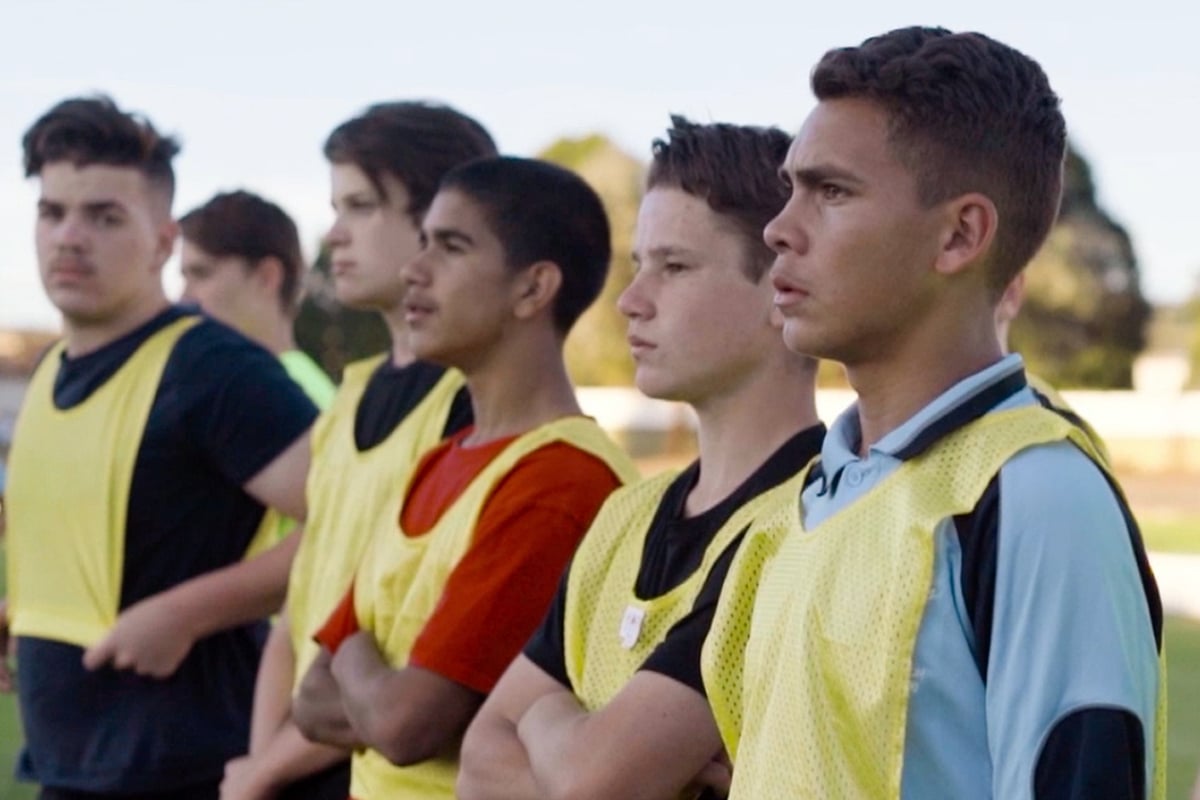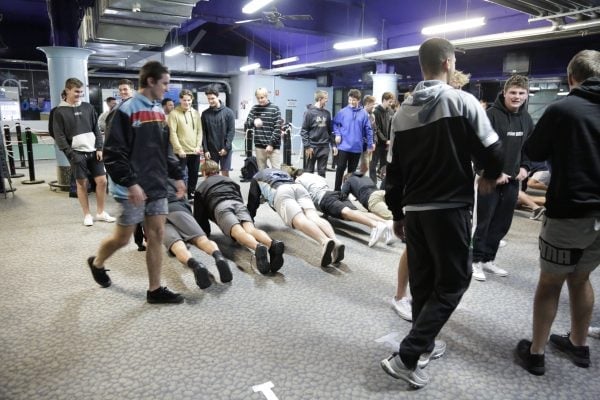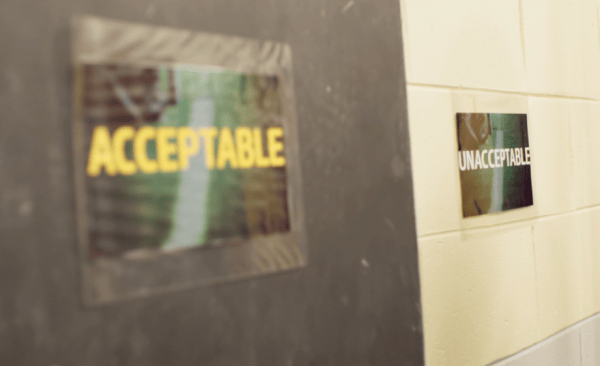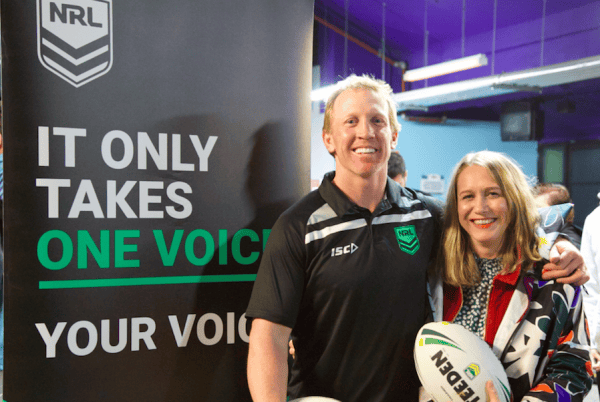
I’m in a bar at the Cronulla Sharks’ NRL team HQ in southern Sydney. It’s a rainy, wintry Monday night, the carpet is slightly sticky, and there’s a lingering stale-beer scent in the air.
A red-headed man with beautiful energy and a broken nose is talking to a group of boys.
“If you are violent against women,” he’s telling them, as they shuffle from foot to foot, “you don’t belong in our game.”
All of these boys desperately want to belong in the game. They are junior players from two local League clubs, fit as hell in their training gear, gagging to get out on the field. They live to play for their teams on the weekend. Their heroes’ faces are blown up on the walls of this place, representing the lives they want to live. And in 2019, if you want that life, you need to do this training.
The man talking to them is Alan Tongue. “Tonguey” is a legend. He played for the Canberra Raiders for 13 years, winning two Dally M positional awards, an exemplary player of discipline on-field and off. Since he retired in 2011, mentoring is his passion, and he’s part of a team that travels across the country, into professional clubs and regional towns and indigenous communities and places like “Sharkies” to put players and wannabe players through the Voice Against Violence training, passionate in his belief that if Rugby League is going to truly shake off its toxic issues of violence and sexual violence against women, it has to start here, with the boys.
Watch Alan Tongue take some young players through the Voice Against Violence training (post continues after video):




Top Comments
Mmm, totally fine to toss the presumption of innocence for a good cause. Funny story, in times past when women were accused of being witches they were executed if they couldn’t prove their innocence. For some reason we stopped doing that. I guess that equates to supporting evil witches?
One thing I don’t fully get as I see the boys all being lined up and threatened that they must change their behaviour for the better to the approving nods and smiles of adults. How come it’s totally unacceptable in every way to suggest a woman who is dangerously overweight should change her behaviour even in the slightest way?
Wow, that's some magnificent whataboutism there, Les. Seriously, top level, first grade stuff.
It's pathetic and it's gotten very sad. I would hate to be a woman in his life.
Thanks Rush, but I figure the courts will sort out the presumption of innocence bit the first time they get sued into the ground by an innocent man denied his livelihood and his reputation destroyed. Do care about that? I’m interested if you actually care about the presumption of innocence?
And yeah, it’s a double standard how it’s fine to criticise anything male and tell them to improve their behaviour but the moment you tell a woman to improve hers, all hell breaks lose.
NRL players aren't being executed or even convicted on the basis of allegations. Their employer is standing them down with full pay until the accusations can be investigated and the matter resolved, which is the same as in lots of professions. Unlike a lot of other professions, they can continue to go to their workplace and interact (train) with their work colleagues - some employers send such employees away from their place of work until the matter is resolved.
A nice uplifting article to the change that is happening with the NRL who are taking responsibility for leading a culture change amongst such an impressionable age of young men. We need more men like Tonguey and programs like this across all sports and perhaps even schools...
Agreed, all junior sports teams, all schools.